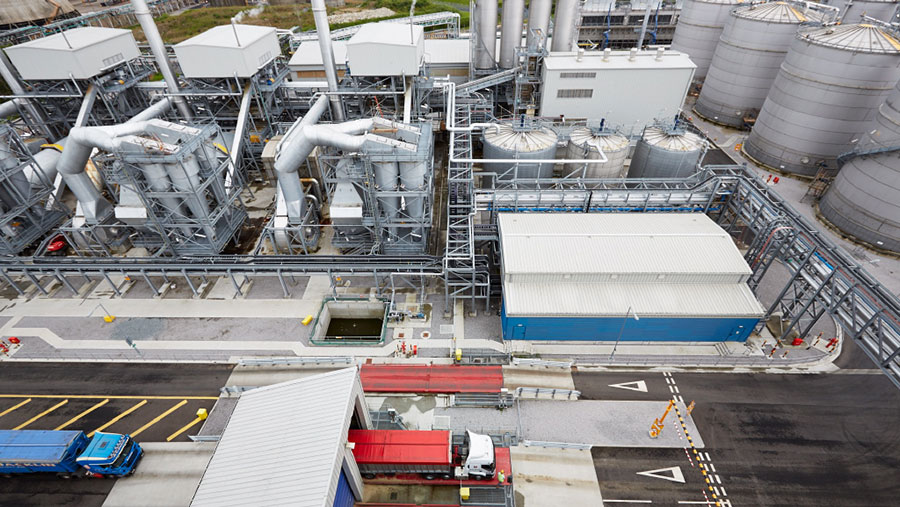Hull bioethanol plant reopens after four-month shut down
 © Vivergo Fuels
© Vivergo Fuels Vivergo Fuels has reopened its Saltend plant near Hull.
The plant, which runs exclusively on UK-grown wheat, has been shut down for four months as a result of weak ethanol prices and a lack of policy certainty.
A firm wheat market had already factored in the re-opening, said traders.
The plant’s usual catchment area is short of wheat and prices rose this week by £3/t-£4/t in most areas, reflecting the tight market and putting spot feed wheat at £136/t-£154/t ex-farm.
While central southern England and the South West saw little or no price movement, values in Kent and East Sussex rose by £3/t, to £136/t, possibly reflecting that the price gap has grown so wide compared with the north-east of England it may be worth moving grain by boat to supply Vivergo.
Renewable Transport Fuel Obligation
The resumption of production at the plant follows the passing of the Renewable Transport Fuel Obligation (RTFO) through Parliament in March.
See also: Compulsory purchase threat grows alongside talk of development land tax
This comes into effect this month and increases the use of renewable fuels in transport from 4.75% to a target of 9.75% by 2020, a move welcomed by the company.
However it has warned the next step, the introduction of E10 fuel in the UK, must come soon. E10 is a blend of 10% renewable bioethanol with petrol, for which environmental benefits are claimed.
“We are pleased to see the RTFO pass through Parliament,” said Mark Chesworth, managing director of Vivergo Fuels.
“This step, combined with the completion of maintenance work, has prompted us to recommence production after being offline over the winter.
“However, there is much still to do if we are to sustain production and maintain this significant industry in the UK.”
E10 benefit
He called for the rapid introduction of E10 for environmental reasons, saying it would provide an immediate impact on transport emissions to the benefit of the environment and public health.
“E10 represents the fastest and most cost-effective solution to decarbonise transport, which is currently the highest emitting sector of greenhouse gases in the UK,” he said.
The construction of Vivergo’s £350m plant was predicated on the UK government’s commitment to the Renewable Energy Directive enacted through to transport fuel to the RTFO, and anticipated the UK market would be twice what it is today by now, said Mr Chesworth.
“Government inertia in developing legislation on this situation has further undermined confidence in renewables investment not least the further development of alternative new technologies.”
The introduction of E10 would also provide greater stability for jobs and skills, both at the plant and in its supply chain, he said.
The Vivergo plant is the UK’s largest and Europe’s second largest producer of bioethanol, a renewable transport fuel which is blended with petrol.
The £350m plant can produce up to 420m litres of bioethanol from 1.1m tonnes of feed wheat, sourced from nearly 900 farms.
It is also the country’s largest single production site for animal feed, supplying 500,000t of high protein feed to more than 800 farms across the UK.
Vivergo Fuels is a joint venture between AB Sugar and DuPont, with ANB Sugar the majority shareholder.
